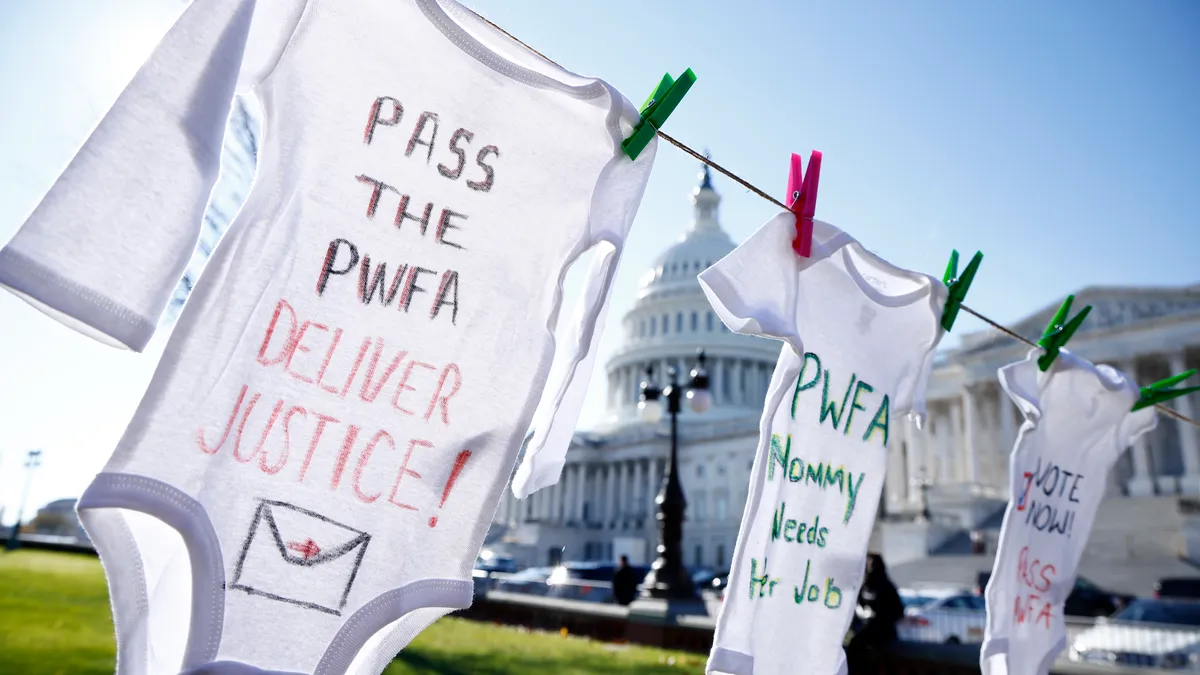Dive Brief:
- A federal judge granted a preliminary injunction for Louisiana, Mississippi and the U.S. Conference of Catholic Bishops on June 17 from complying with a federal rule that requires workers be given time off and other accommodations for abortions, according to court documents.
- Judge David C. Joseph for the U.S. District Court for the Western District of Louisiana ruled in two consolidated lawsuits that the two states and the Catholic organizations would temporarily not be held to final rules issued in April by the U.S. Equal Employment Opportunity Commission that included elective abortions among the pregnancy-related conditions covered by the Pregnant Workers Fairness Act.
- In the order, Joseph said “the EEOC has exceeded its statutory authority to implement the PWFA and, in doing so, both unlawfully expropriated the authority of Congress and encroached upon the sovereignty of the States Plaintiffs.” However, the court limited the injunction to cover only the plaintiffs in the case and did not extend it to the rest of the U.S.
Dive Insight:
The regulations in question have been met with resistance since first issued. While the law took effect in June 2023, the final rule, issued in April, took effect June 18.
The law requires employers “to make reasonable accommodations to the known limitations related to the pregnancy, childbirth, or related medical conditions of a qualified employee, unless such covered entity can demonstrate that the accommodation would impose an undue hardship on the operation of the business of such covered entity.”
At issue has been the EEOC’s inclusion of abortions in defining related medical conditions. Louisiana and Mississippi argued that the final rule’s inclusion of elective abortions challenges state laws restricting and limiting abortions after the U.S. Supreme Court’s Dobbs v. Jackson ruling. The Catholic organizations said the final rule “requires them to knowingly accommodate employees when they obtain abortions, even where such accommodations are contrary to their sincerely held religious beliefs,” according to court documents.
In a separate case, a federal judge dismissed with prejudice Friday 17 states’ motion for a preliminary injunction on the grounds that the plaintiffs lacked standing and did not show how the rule would cause sovereign or economic harm.












